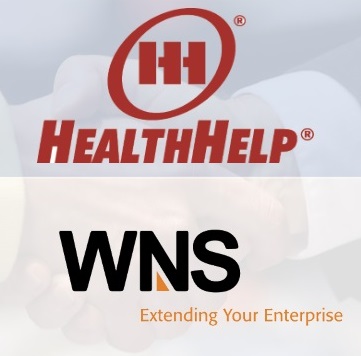Search posts by keywords:
Filter posts by author:
Related Reports
Related NEAT Reports
Other blog posts
posted on Mar 30, 2017 by Rachael Stormonth

On March 15, WNS announced its intended acquisition of HealthHelp, in what, at $95m, will be its largest acquisition to date. HealthHelp, founded in 1999 and headquartered in Houston, TX is a 400-FTE strong healthcare utilization management specialist.
In many ways, the HealthHelp acquisition has much in common with WNS’ Value Edge acquisition. HealthHelp, like Value Edge, will become part of WNS’ healthcare business unit and is rooted in research & analytics. While WNS’ healthcare unit has a traditional “administrative” BPS business, around claims, billing, & collections, serving healthcare payers, the bulk of WNS’ healthcare revenues are derived from the pharmaceuticals sector. This acquisition is intended to assist WNS’ healthcare unit in achieving a more balanced revenue mix between healthcare payer and pharmaceuticals.
Targeting Direct Care Costs in Addition to Administrative Costs
The acquisition gives WNS’ healthcare payer capability a major boost and enables WNS to position on reducing the direct cost of care for healthcare payers, and not just on reducing their administrative costs. Post-acquisition, WNS is now going to market in the healthcare payer sector with a combination of administrative BPS services, analytics, and the collaborative care management services from HealthHelp. WNS was already targeting its existing healthcare payer BPS clients with analytics services, though mostly on a project basis; this acquisition provides it with an opportunity to enhance its existing healthcare analytics capability with a high value-add service to assist payers in establishing improved treatment rules and guidelines in collaboration with providers. WNS is already in conversation with several large national payors regarding its new combined offering and will be targeting both national payors and regional payors.
And, of course, in addition to targeting existing WNS healthcare payer clients and prospects with its HealthHelp capabilities, WNS will target existing HealthHelp clients with its complementary established claims management and analytics capabilities.
Cross-Fertilizing into Workers’ Compensation
Because of the complementary nature of HealthHelp’s services and WNS’ existing healthcare payer offerings, the integration of HealthHelp into WNS should be relatively straightforward leaving the delivery organizations of the existing entities largely unchanged. The principal integration activities involve creating a joint go-to-market and integrating WNS’ existing technology with HealthHelp’s Consult software.
In addition, WNS has evaluated using HealthHelp’s Consult pre-authorization tool in support of workers’ compensation utilization, which uses similar data sets to healthcare payer, and pharmaceuticals utilization, and is likely to enhance Consult to support workers’ compensation in the near future.
Supporting an Under-Penetrated Market
HealthHelp began life supporting Humana and was initially centered on supporting Medicaid and Medicare claims. Indeed, Humana still accounts for over 60% of HealthHelp’s revenues; it now also has contracts with a number of smaller payors. So WNS and HealthHelp have an under-penetrated market with considerable potential opportunity.
The areas currently supported by HealthHelp’s collaborative care management are cardiology, radiology, oncology, pain & orthopaedic, sleep care, and emergency medicine. For each of these areas, HealthHelp has established “evidence-based guidelines to directly help providers order the most appropriate tests and procedures for their patients”. The service works on a non-denial basis and aims to reduce the cost of treatment to payers by educating providers on the most appropriate procedures and avoid unnecessary or inappropriate tests and treatment.
This knowledge is encoded in HealthHelp’s Consult clinical decision support platform which provides healthcare providers with guidance for performing the most appropriate tests and procedures and typically approves 75% of provider recommendations automatically, with the remaining 25% being subject to HealthHelp’s nurse review. Here, HealthHelp nurses collaborate with physicians to discuss alternative treatments and propose clinical guidelines more relevant to the patient’s condition. HealthHelp has ~400 FTEs with the majority based onshore in the U.S. principally in Houston. Other U.S. locations include a contact center in Albany, New York, and an office in Annapolis, Maryland from where it serves the radiology community. In addition, HealthHelp has customer service personnel based in the Philippines. The company also collaborates with ~100 MDs and 11 university medical systems, that are involved in guidance in ~6% of more challenging cases, with HealthHelp supporting the physician seeking guidance with a specialist in their field.
HealthHelp estimates that removing the threat of denial and providing “collaborative consultation and education between providers and payors’ utilization management organizations” has resulted, for example, in 15%-30% savings for radiation oncology and 12%-25% for medical oncology.
At the same time, HealthHelp’s utilization management process aims to reduce the overuse of screening and diagnostic tests by detecting redundant testing, sequential testing, and physicians billing for unauthorized procedures.
A further benefit to payers is that many of HealthHelp’s services qualify as “activities that improve healthcare quality” within the MLR requirement and so do not count as an administrative cost to payer organizations.
Pricing for HealthHelp is currently based on a standard PMPM (per member per month) model. WNS may look to evolve this to outcome-based pricing models as it looks to assist healthcare payers in driving down the overall cost of medical care.
Opening the Door to Regional Payers and Healthcare Systems Outside the U.S.
In summary, the acquisition of HealthHelp lifts WNS’ healthcare payer proposition beyond the legacy and mature area of administrative cost reduction into direct care cost reduction and provides WNS with an onshore “door-opener” for both national payors who have traditionally been receptive to offshore-centric administrative services and for regional payors, who have not.
The new capability also potentially has applicability to other areas of the wider healthcare-related industry where organizations need to reduce direct treatment costs, including workers’ compensation, pharmaceutical spend, and even potentially healthcare systems outside the U.S. Here, WNS could potentially target the NHS in the U.K., a country where WNS has an existing strong presence.
